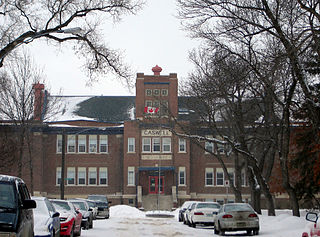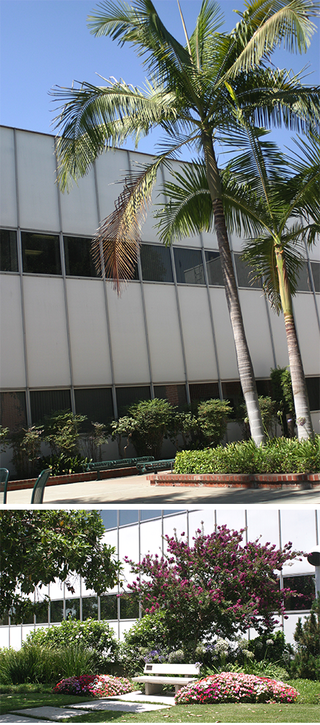Related Research Articles

Physical therapy (PT), also known as physiotherapy, is one of the allied health professions. It is provided by physical therapists who promote, maintain, or restore health through physical examination, diagnosis, management, prognosis, patient education, physical intervention, rehabilitation, disease prevention, and health promotion. Physical therapists are known as physiotherapists in many countries.

Psychotherapy is the use of psychological methods, particularly when based on regular personal interaction, to help a person change behavior, increase happiness, and overcome problems. Psychotherapy aims to improve an individual's well-being and mental health, to resolve or mitigate troublesome behaviors, beliefs, compulsions, thoughts, or emotions, and to improve relationships and social skills. Numerous types of psychotherapy have been designed either for individual adults, families, or children and adolescents. Certain types of psychotherapy are considered evidence-based for treating some diagnosed mental disorders; other types have been criticized as pseudoscience.

Massage is the manipulation of the body's soft tissues. Massage techniques are commonly applied with hands, fingers, elbows, knees, forearms, feet or a device. The purpose of massage is generally for the treatment of body stress or pain. In European countries, a person professionally trained to give massages is traditionally known as a masseur (male) or masseuse (female). In the United States, these individuals are often referred to as massage therapists, because they must be certified and licensed as "licensed massage therapists".

A respiratory therapist is a specialized healthcare practitioner trained in critical care and cardio-pulmonary medicine in order to work therapeutically with people who have acute critical conditions, cardiac and pulmonary disease. Respiratory therapists graduate from a college or university with a degree in respiratory therapy and have passed a national board certifying examination. The NBRC is responsible for credentialing as a CRT, or RRT,

Occupational therapy (OT) is a healthcare profession. It involves the use of assessment and intervention to develop, recover, or maintain the meaningful activities, or occupations, of individuals, groups, or communities. The field of OT consists of health care practitioners trained and educated to improve mental and physical performance. Occupational therapists specialize in teaching, educating, and supporting participation in any activity that occupies an individual's time. It is an independent health profession sometimes categorized as an allied health profession and consists of occupational therapists (OTs) and occupational therapy assistants (OTAs). While OTs and OTAs have different roles, they both work with people who want to improve their mental and or physical health, disabilities, injuries, or impairments.
Dance/movement therapy (DMT) in USA/ Australia or dance movement psychotherapy (DMP) in the UK is the psychotherapeutic use of movement and dance to support intellectual, emotional, and motor functions of the body. As a modality of the creative arts therapies, DMT looks at the correlation between movement and emotion.

Transgender rights in Canada, including procedures for changing legal gender and protections from discrimination, vary among provinces and territories, due to Canada's nature as a federal state. According to the 2021 Canadian census, 59,460 Canadians identify as transgender.
Sex therapy is a strategy for the improvement of sexual function and treatment of sexual dysfunction. This includes sexual dysfunctions such as premature ejaculation or delayed ejaculation, erectile dysfunction, lack of sexual interest or arousal, and painful sex, as well as dealing with problems imposed by atypical sexual interests (paraphilias), gender dysphoria and being transgender, highly overactive libido or hypersexuality, a lack of sexual confidence, recovering from sexual abuse such as rape or sexual assault, and sexual issues related to aging, illness, or disability.
Manual therapy, or manipulative therapy, is a physical treatment primarily used by physical therapists, physiotherapists, occupational therapists to treat musculoskeletal pain and disability; it mostly includes kneading and manipulation of muscles, joint mobilization and joint manipulation. It is also used by Rolfers, massage therapists, athletic trainers, osteopaths, and physicians.
A Doctor of Physical Therapy or Doctor of Physiotherapy (DPT) degree is a qualifying degree in physical therapy. In the United States, it is considered a graduate-level first professional degree or doctorate degree for professional practice. In the United Kingdom, the training includes advanced professional training and doctoral-level research.
Advocates for Children in Therapy (ACT) is a U.S. advocacy group founded by Jean Mercer and opposed to attachment therapy and related treatments. The organization opposes a number of psychotherapeutic techniques which are potentially or actually harmful to the children who undergo them. The group's mission is to provide advocacy by "raising general public awareness of the dangers and cruelty" of practices related to attachment therapy. According to the group, "ACT works to mobilize parents, professionals, private and governmental regulators, prosecutors, juries, and legislators to end the physical torture and emotional abuse that is Attachment Therapy."
Dry needling, also known as trigger point dry needling and intramuscular stimulation, is a treatment technique used by various healthcare practitioners, including physical therapists, physicians, and chiropractors, among others. Acupuncturists usually maintain that dry needling is adapted from acupuncture, but others consider dry needling as a variation of trigger point injections. It involves the use of either solid filiform needles or hollow-core hypodermic needles for therapy of muscle pain, including pain related to myofascial pain syndrome. Dry needling is mainly used to treat myofascial trigger points, but it is also used to target connective tissue, neural ailments, and muscular ailments. The American Physical Therapy Association defines dry needling as a technique used to treat dysfunction of skeletal muscle and connective tissue, minimize pain, and improve or regulate structural or functional damage.
Feminist therapy is a set of related therapies arising from what proponents see as a disparity between the origin of most psychological theories and the majority of people seeking counseling being female. It focuses on societal, cultural, and political causes and solutions to issues faced in the counseling process. It openly encourages the client to participate in the world in a more social and political way.

Education in Saskatchewan, Canada, teaches a curriculum of learning set out by the Government of Saskatchewan through the Ministry of Education. The curriculum sets out to develop skills, knowledge and understanding to improve the quality of life. On June 22, 1915, Hon. Walter Scott, Premier and Minister of Education, set out as his mandate the "purpose of procuring for the children of Saskatchewan a better education and an education of greater service and utility to meet the conditions of the chief industry in the Province, which is agriculture". Education facilitates the cultural and regional socialization of an individual through the realisation of their self-potential and latent talents. Historically, the region of Saskatchewan needed successful homesteaders so the focus was to develop a unified language for successful economic trading, and agricultural understanding to develop goods, livestock and cash crops to trade. After the mechanized advancements following the industrial revolution and World War II, the primary employment agriculture sector of farming was not as labour-intensive. Individuals focused on secondary industries such as manufacturing and construction, as well as tertiary employment like transportation, trade, finance and services. Schools became technologically more advanced and adapted to supply resources for this growing demand and change of focus.

A professional fitness coach is a professional in the field of fitness and exercise, most often instruction, including professional sports club's fitness trainers and aerobics and yoga instructors and authors of fitness instruction books or manuals.
Sex surrogates, sometimes referred to as surrogate partners, are practitioners trained in addressing issues of intimacy and sexuality. A surrogate partner works in collaboration with a sex therapist to meet the goals of their client. This triadic model is used to dually support the client: the client engages in experiential exercises and builds a relationship with their surrogate partner while processing and integrating their experiences with their therapist or clinician.
The Saskatchewan College of Psychologists is the organization charged with regulating the practice of psychology in the Canadian province of Saskatchewan. The act which provides this organization with its power was proclaimed in 2002, while the legislation was submitted in 1997.

The USC Division of Biokinesiology and Physical Therapy is a division of the Herman Ostrow School of Dentistry at the University of Southern California, focusing on research, training, and practice related to physical therapy and rehabilitation. The division grants doctoral degrees in physical therapy (DPT) and biokinesiology (PhD), as well as master's degrees in biokinesiology. In addition, the division offers residency programs in orthopedic physical therapy, neurologic physical therapy, sports physical therapy, as well as pediatric physical therapy.

The history of physical therapy in the Philippines relates how physical therapy started in the Philippines and how it evolved as a profession through three significant phases in the history of the Philippines: from the American era leading to the Japanese occupation of the islands during World War II, and up to the modern-day time period of the independent Philippine Republics. It was introduced in the Philippines ahead of rehabilitation medicine.

Philip Lawrence is a Canadian politician who was elected to represent the riding of Northumberland—Peterborough South in the House of Commons of Canada in the 2019 Canadian federal election. He was appointed Shadow Minister of National Revenue in the Conservative Party's shadow cabinet on Sept. 8, 2020.
References
- ↑ "Saskatchewan College of Physical Therapists". Saskatchewan College of Physical Therapists. Retrieved 2 February 2013.
- ↑ Merrilee Rasmussen; Kenneth P. R. Hodges; Michaela Keet; Alan McIntyre; Susan Amrud; Carole Lavallee; Susan Bates; Sarah Buhler; Georgina Jackson (March 2007). "Handbook of Professional Disciplinary Procedure" (PDF). Law Reform Commission of Saskatchewan. Retrieved 2 February 2013.